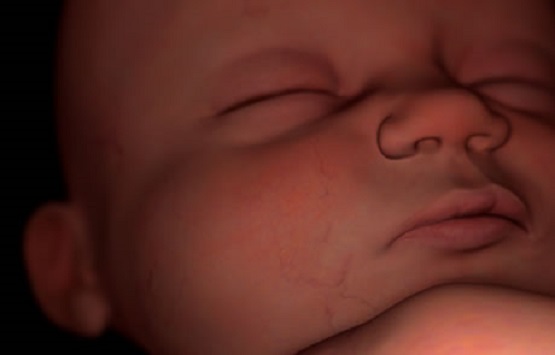By a single vote of 22-21, the South Carolina Senate advanced the Human Life Protection Act (H3774) to second reading Tuesday. The crucial and final third reading is pending. Third reading is the most critical, make-or-break vote for the unborn children of South Carolina.
The crucial measure would protect the lives of unborn children starting at conception and make South Carolina the 16th state to officially ban abortions after the Supreme Court overturned Roe.
Lawmakers crafted the bill in a way to respond to the courts that have blocked the current heartbeat law protecting babies from abortions starting when their heartbeat can be detected. Senate Majority Leader Shane Massey emphasized that several clarifications of the bill’s language and repeals of conflicting laws will satisfy a majority on the South Carolina Supreme Court.
The state House approved the Human Life Protection Act on an 83-31 vote. Rep. Jackie Hayes of Dillon was the only Democrat to vote for the bill along with pro-life Republicans. But the Senate battle has been much closer — leading the state’s pro-life group to ask pro-life residents to call lawmakers ASAP.
“Calls need to continue to the offices of the State Senators. Click here to call and e-mail your Republican State Senator with the message Vote for Cloture to end debate and Vote for H3774, the Human Life Protection Act,”South Carolina Citizens for Life said.
“Second reading is a necessary step to protect the more than 100 unborn children dying each week in South Carolina because of abortion,” said South Carolina Citizens for Life President Lisa Van Riper. “We applaud the 22 senators who stood for life today; however, the Senate’s commitment to life will be on third reading.”
Senate Majority Leader Shane Massey, R-Edgefield, explained the bill that protects unborn human life when a woman is diagnosed as being pregnant. There are four exceptions that allow abortion to save the mother’s live, prevent serious bodily impairment, in cases of rape and incest, and in the case of a fatal fetal anomaly.
Citing abortion statistics from the Department of Health and Environmental Control, Senator Massey said abortions have doubled in South Carolina since the State Supreme Court overturned the 2021 Fetal Heartbeat Act while Georgia and Florida enacted laws protecting the unborn when the heartbeat can be detected. He said South Carolina is an abortion destination state for the southeast.
“South Carolina [abortion] law is the weakest in the southeast,” Massey said, emphasizing that abortions for out-of-state women have nearly doubled. North Carolina allows late abortions up to 20 weeks but there is a three-day waiting period, he said. That is a factor driving North Carolina residents to South Carolina where there is a 24-hour waiting period.
In 2022 from January to March, 87 non-resident women received abortions in South Carolina. In 2023 from January to March, 1,385 non-resident women received abortions in South Carolina. “That is a 1500 percent increase” in the number of non-resident women coming to South Carolina for abortion, Massey said.
Abortion is legal in South Carolina up to 20 weeks after fertilization. “Most South Carolinians don’t think that is acceptable,” Massey said.
During the three hours of debate, the majority of all the senators staved off an amendment by Senator Greg Hembree, R-Horry, to make the abortion issue a referendum to be voted on in an election. Senate President Thomas Alexander, R-Oconee, ruled that the amendment was “not germane” to the Human Life Protection Act. When militant pro-abortion Senator Sandy Senn, R-Charleston, appealed Alexander’s decision, she lost by vote of 5-39.
All 22 votes in favor of second reading for the Human Life Protection Act are Republicans. There are 30 Republicans in the SC Senate. Six Republicans join the pro-abortion Democrats in opposing the Human Life Protection Act. They are Tom Davis of Beaufort, Sandy Senn of Charleston, Katrina Shealy of Lexington, Penry Gustafson of Kershaw, Luke Rankin of Horry, and Greg Hembree of Horry.
One particularly effective message came from pro-life physician Peter Bleyer, M.D. who wrote to the lawmakers, “As president of South Carolina’s Catholic Medical Guild and medical director of two SC crisis pregnancy centers, I have come to fully understand that it is our refusal to respect life in all its stages which has led to the general disrespect for our profession. If you lie about little things, you will lie about greater ones as well. In denying the humanity of the small, newly conceived human for financial gain, we denied our ethical duty to establish a doctor-patient relationship with the child in the womb and sold out to our patients… Large physician groups have worked tirelessly since the 70s to convince America that not all life has equal value, dehumanizing that which physicians know better than anyone to be completely human. It is disappointing that government must legislate that which physicians have a natural ethical obligation to provide, but I thank you for doing so. Clearly it is necessary. Please pass H3774, the Human Life Protection Act and protect the most vulnerable members of our human family in South Carolina.”
South Carolina Citizens for Life and the state’s coalition of pro-life, pro-family organizations strongly supported H3774. These include the Catholic Diocese of Charleston, Palmetto Family, the South Carolina Baptist Convention, the South Carolina Association of Pregnancy Care Centers, the South Carolina Republican Party, and the Alliance Defending Freedom among others. Numerous pro-life physicians, nurses, and individuals with pro-life stories to tell submitted written testimony in support of H3774.








